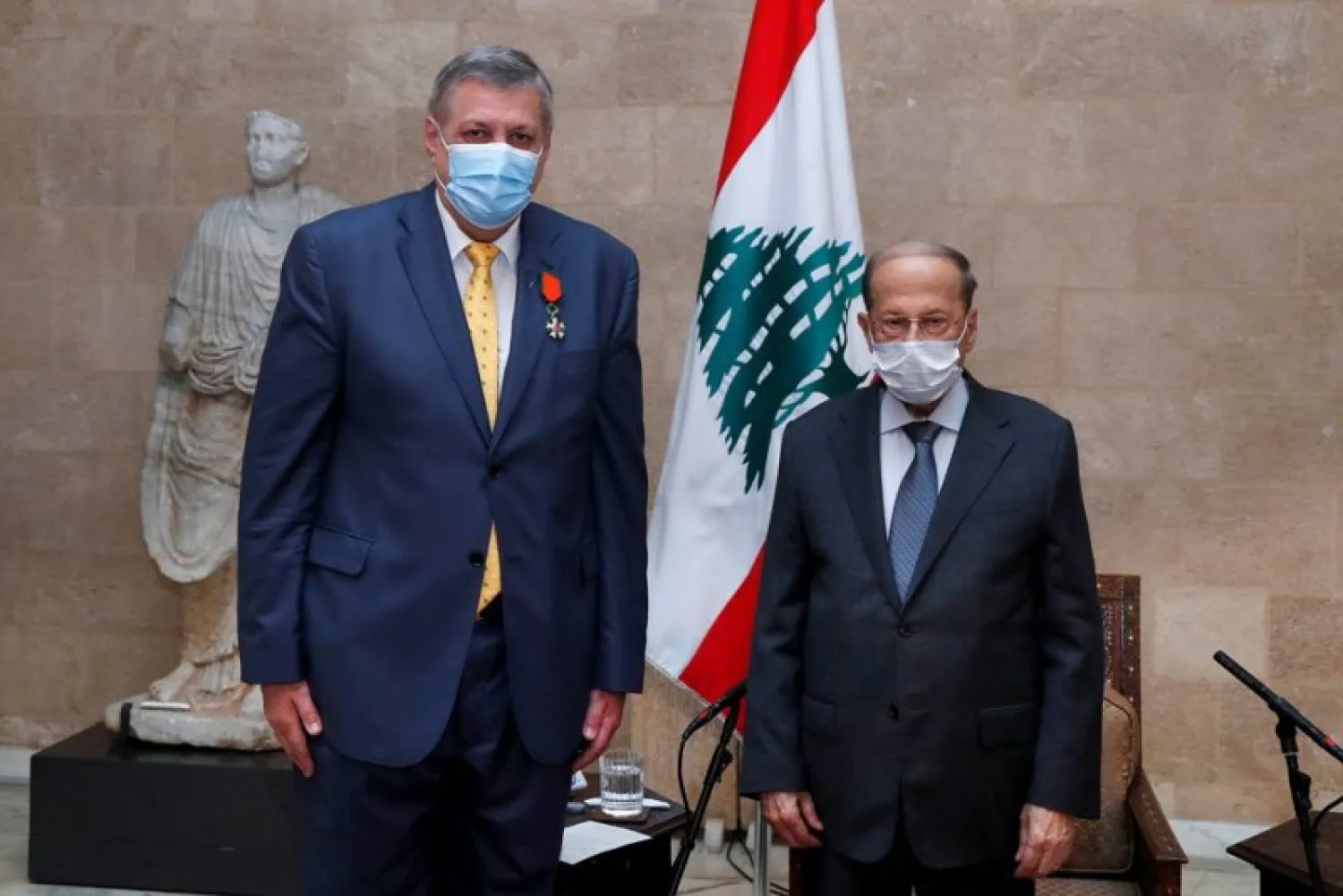Lebanese President Michel Aoun affirmed Monday his country’s keenness to cooperate with the United Nations in all areas, stressing adherence to international charters and decisions, especially Resolution 1701.
Aoun’s statement came while receiving UN Special Coordinator in Lebanon, Jan Kubis, at the Baabda Palace, on a farewell visit to mark the end of his tasks in Lebanon, and his assumption of new assignments, in Libya.
The President called on UN-affiliated international organizations to continue providing support and assistance to Lebanon, especially in light of the current difficult circumstances, which the country passes through.
Aoun awarded Kubis the National Cedar Order (Rank of Knight), in recognition of his efforts in enhancing cooperation between the UN and Lebanon, wishing him success in his newly assumed tasks. The President thanked the UN official for everything he had given and made for the benefit of Lebanon, which made him a friend of this country.
Aoun also conveyed his greeting to UN Secretary-General, Antonio Guterres, “Who more than once expressed his love, affection, and love for Lebanon, along with his constant desire to support this country.”
For his part, Kubis said, “I am leaving Lebanon, and this is unexpected, because my plan was to stay for a longer period, but matters are subject to circumstances and need. Therefore, I have to leave, but I am heartily staying here.”
He said the UN will continue to communicate with Lebanon. Kubis’ Deputy, Resident and Humanitarian Coordinator, Najat Rushdi, will be in charge of the whole UN operation, up until the Secretary-General will appoint a successor.
“I can confirm that the same attitude will be at the disposal and work for the benefit of Lebanon, by General Del Cole, Head of UNIFIL, and the operations will continue,” Kubis stated.
He added that the UN Secretary-General is following, with keen interest, what is happening in the country, lately last Thursday in a telephone conversation with the Caretaker Prime Minister Hassan Diab.
“They dealt with a number of issues which are very relevant and critical for Lebanon. I am in contact with the Secretary-General and I can confirm that he is now intensively looking in the areas in which Lebanon needs assistance, and he is ready to mobilize international and UN assistance,” Kubis said.









